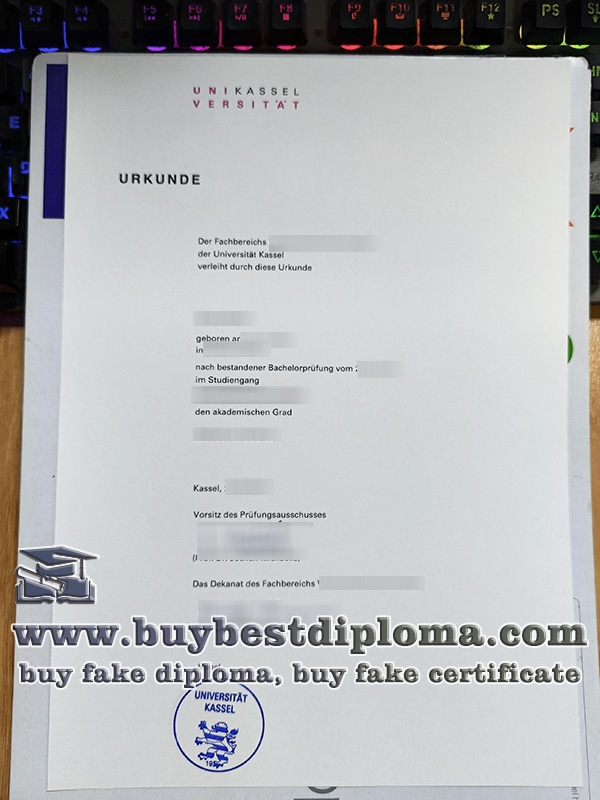
Where to get a fake universität kassel diploma, buy fake universität kassel urkunde, buy fake Germany diploma. Founded in 1971, the University of Kassel is the newest university in the state of Hessen. Current enrolment is approximately 25,000 students. The University of Kassel offers a wide range of undergraduate and postgraduate study programs in many fields and an interdisciplinary approach in a wide range of renewable energy integration projects. In the faculty of Electrical Engineering and Computer Science a Competence Centre for Decentral Electrical Energy Supply (KDEE) has been created. The department e2n (Energy Management and Power System Operation) has been established in close cooperation with the Fraunhofer Institute for Energy Economics and Energy System Technology (IEE) in Kassel, Germany.
Our goal is to develop a new approach for coordinating and managing active power requests from the overlaying network (e.g. TSO – DSO) for conventional and renewable energy sources in the distribution network. Including price sensitivities and current network states, this approach will provide a realistic active power potential in order to save costs originating from congestion measures. In order to realize this approach, we integrate advanced forecast techniques into a state estimation, already developed system architectures for the installation in operation systems as well as extensive simulations.
In the research group Energy Management and Power System Operation, University of Kassel, we have gathered a lot of experience and built up significant expertise in the development of state estimation and power flow optimizing algorithms during completed and ongoing projects. Based on the different state estimation algorithms, which have already been developed by our group, we develop a state estimation which takes as input the forecast data from the forecast algorithms developed by Fraunhofer IEE. To test the newly developed methods in a laboratory environment and analyse its impact on the current energy system as well as scaled and future systems, we use the real-time co-simulation environment OpSim, containing various standardized interfaces, which has been developed during the project OpSim in close cooperation with Fraunhofer IEE. We also use our existing power load flow and network analysis framework for the development of the optimization algorithm.
